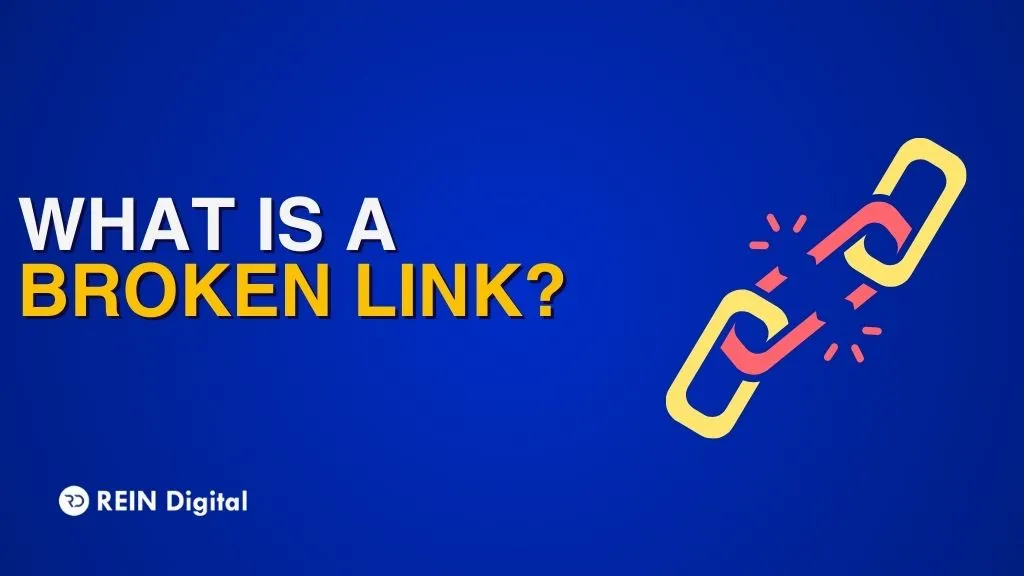
Today, approximately 4 billion people around the world are connected to the internet. What better time for businesses to market their products and services globally, right? The internet, while it is an excellent place to publicize your offerings, it is not something to be taken lightly. Thriving on the internet requires a stellar marketing strategy otherwise your organization can get lost in the shuffle.
One way to strengthen your marketing strategy and stand apart from the crowd is blogging. It not only drives website traffic and is an excellent tool to promote your offerings but also builds trust with your potential audience. But, how should you start? In this post, we will cover the best blogging platforms present in the market today that will help you drive inbound traffic to your website. So, here we go.
Top 3 Best Blogging Platforms
- WordPress with Hostinger
- Wix
- Squarespace
1. WordPress with Hostinger
Due to its highly customizable content management system (CMS), WordPress is one of the best blogging platforms for writers as well as people who want to build a website for their business. Even if you want to scale your blog to make huge gains, WordPress allows you to do that. How? It is an open-source platform on which developers can create plugins, widgets, and other tools that add the scalability factor to the CMS.
Having said that, WordPress is blogger-friendly because it has a lot of SEO features baked in. If you plan to build a readership of thousands or even millions—not to mention monetize it—WordPress is the go-to platform for bloggers.
At first glance, the blog dashboard may look beyond someone’s ken but, once you jump in, it is fairly intuitive and easy to use. With the introduction of the Gutenberg editor, the editing process has become even simpler than before. You can drag and drop certain elements of your pages and blogs where you want them to be in the final published version.
Moreover, the layout is easily manageable, and finding fonts and inserting images is as easy as pie. More importantly, WordPress is incredibly scalable. If you want to grow your blog or website, WordPress will grow with you provided that you choose the right plugins. However, don’t make the classic rookie mistake of downloading tons of plugins as it will slow down your website. Always remember, when it comes to plugins, less is more.
One of the cult favorites is the Yoast SEO plugin which helps you make your articles as SEO-friendly as possible with a few steps. It is a must-have in your arsenal if you want your articles to rank in the SERP.
How to Get Started?
Building a website using WordPress needs buying a domain name, getting web hosting, and setting up your account. Providing all of this under one roof is Hostinger, a web hosting provider and the Internet domain registrar. So much so, Hostinger has become WordPress users’ favorite when it comes to hosting, and to put a cherry on the cake, you can get a domain name for free.
Hostinger runs servers that only support WordPress websites and due to this, WordPress websites hosted on Hostinger are faster, safer, and even better performers. Your website can be up and running within minutes. No, seriously. Just select WordPress as your desired CMS and Hostinger will automatically install it for you. And still, it is affordable with copious amounts of features. At $1.99 a month, you’ll get:
- A free domain name for the first year
- Freedom to build up to 100 different websites
- 100 email accounts associated with your domain
- 365/24/7 technical support via live chat
Even if it is beginner-friendly, you’ll need some time to completely get the hang of the CMS, but once you do, you’ll not look for other blogging platforms. Another thing that WordPress can improve on is customer support. There isn’t 24/7 customer support but this con is taken care of if you sign up with Hostinger. You can reach out to their support team be it day or night and they can handle common WordPress queries.
Final Verdict
Building a website with WordPress with Hostinger is a great place to start if you want to create a blog that can scale with you. Especially, if you want to monetize it and optimize it for traffic and growth, WordPress and Hostinger have got your back. Despite the small learning curve, once you get the hang of it, it becomes a powerful tool that you can use to create your ideal blog. It takes more time to create a website on WordPress than Wix but the level of customization you get with WordPress is unmatched.
2. Wix
If you build a website with Wix, it may look like professionals have designed your blog even if you know nothing about web development. Its ease-of-use is on par with WordPress and the learning curve is relatively simple. Users can create a website without any coding background as the drag-and-drop editor UI is highly intuitive and the tools can create personalized layouts and designs all without any technical hiccups.
When you begin with Wix, it handholds you through the entire process step-by-step if need be. With hundreds of templates for simple portfolios, travel blogs, or photo galleries, you can create a stunning website in minutes. And if you run into problems, there is 24/7 customer support (in the United States) and their knowledge base in the form of articles can help you out.
But, Wix’s ADI builder takes care of most of the legwork as it leverages artificial intelligence to help you build the website you envision by answering a few questions. This all-round package makes Wix one of the best blogging platforms in the game.
How’s Blogging with Wix?
Wix’s blog manager is intuitive and simple entwined with analytics and SEO tools. It’s a cakewalk adding features such as likes, comments, social tools, categories, hashtags, and subscriber forms on your blog. However, you should start with the blog template category and once you’ve selected the template, update the colors, fonts, and logo to personalize it and make it unique.
Creating a post is as simple as clicking on “Create a Post,” writing a post, adding a few images, and publishing it. You can also add contributors to your website to add variety to your content. You can SEO optimize the post with alt tags for your images, SEO titles and descriptions, internal links, and nofollow tags for external links.
With Wix, downloading and installing additional plugins and widgets is not necessary. All you need to do is update your SEO settings for every post to show up in the SERP rankings organically. Moreover, the post will have a read time count (same as Medium) that shows the readers the estimated time to go through the post. You can also interact with your audience and chat with them with the Wix app and build a real community.
What’s more? Wix websites are highly responsive and look great across desktops, tablets, and mobiles, which draws the readers in. The visitors can easily browse through the website and can find what they are looking for. However, there are a couple of downsides to Wix. The platform is fairly affordable but if you want to scale to an e-commerce website, you have to pay for a pricier plan. Also, Wix is not the best blogging platform to make money. Not to say it can’t be done, Wix features stand-out blogs made on the Wix platform which can lead to new opportunities.
Final Verdict
Wix is one of the best blogging platforms for beginners with its wide range of themes that can personalize your blog the way you want—no web development knowledge is needed. It can take the guesswork out of building a website with its AI website builder by answering just a few questions. Despite its downsides, it is one of the best platforms to start a blog.
3. Squarespace
One thing about Squarespace websites is how exceptionally gorgeous they are. Be it the homepage, the About Us page, or any other, it looks like the pictures will leap off the screen. And that’s why Squarespace is perfect for photographers, illustrators, interior designers, graphic designers, and more.
These artistically-minded people can have their blog up and running within a day. Squarespace offers clean and beautiful templates that can be tweaked easily. Also, editing your blog, the about page, contacts page, your portfolio, the homepage is a cruise on Squarespace.
Similar to Wix, it has a drag-and-drop tool and unlike WordPress, the backend editor is quite easy to understand. When you are building a page, you can see the changes as you are building it. On WordPress, when you are editing a blog, you have to visit the front end to see the changes but on Squarespace, you can see the changes as they are happening.
In addition to this, Squarespace allows you to add an e-commerce portion along with newsletter integration, members area, and podcast support, which can help you scale your blog into a profitable business. No matter how good Squarespace is, it is far from perfect. One of its downsides is the lack of customization.
It offers great tools such as email marketing, e-commerce, and others but when it comes to overall customization, it lags behind WordPress. Also, the mobile editor is a hassle. It takes time to build a website on Squarespace for a desktop but you literally have to build a second website for mobile, which consumes even more time.
Final Verdict
While the platform's templates are simply stunning, it lacks features and customization. You don’t have access to tools such as the Yoast SEO plugin to SEO optimize your blog. Additionally, to use Squarespace’s e-commerce abilities, you have to pay more. However, it is one of the best blogging platforms to showcase your designs, photos, and content, especially for beginners.
Best Free Blogging Platforms
When talking about blogging, you cannot forget some free alternatives such as LinkedIn. When we talk about LinkedIn, it is a social network for industry professionals. You can get quick feedback from your peers on the articles. You can put your thought leadership in front of potential clients and customers, influencers, to recruiters in your field.
Creating a blog on LinkedIn is very simple. All you need is a profile like Facebook and you can create an article. LinkedIn is one of the best free blogging platforms only if you are using it to support a platform like your website. It is not directly monetizable and depends on algorithms for reach and engagement.
To Summarize
Blogging may seem simple but it requires a lot of skill, patience, and a great blogging platform. A blogging platform must be easy-to-use, intuitive, secure, and at the same time, affordable. And as per our list, WordPress with Hostinger is the best blogging platform to make money and grow an audience as it offers all the qualities. However, other platforms do not lag behind, they are also some of the best platforms to start a blog.














